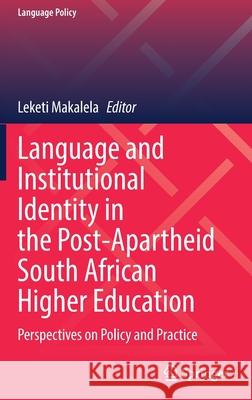Language and Institutional Identity in the Post-Apartheid South African Higher Education: Perspectives on Policy and Practice » książka
topmenu
Language and Institutional Identity in the Post-Apartheid South African Higher Education: Perspectives on Policy and Practice
ISBN-13: 9783030859602 / Angielski / Twarda / 2022 / 342 str.
Language and Institutional Identity in the Post-Apartheid South African Higher Education: Perspectives on Policy and Practice
ISBN-13: 9783030859602 / Angielski / Twarda / 2022 / 342 str.
cena 603,81
(netto: 575,06 VAT: 5%)
Najniższa cena z 30 dni: 578,30
(netto: 575,06 VAT: 5%)
Najniższa cena z 30 dni: 578,30
Termin realizacji zamówienia:
ok. 16-18 dni roboczych.
ok. 16-18 dni roboczych.
Darmowa dostawa!
Kategorie:
Kategorie BISAC:
Wydawca:
Springer
Seria wydawnicza:
Język:
Angielski
ISBN-13:
9783030859602
Rok wydania:
2022
Wydanie:
2021
Numer serii:
000258952
Ilość stron:
342
Waga:
0.42 kg
Wymiary:
23.39 x 15.6 x 1.12
Oprawa:
Twarda
Wolumenów:
01
Dodatkowe informacje:
Wydanie ilustrowane











